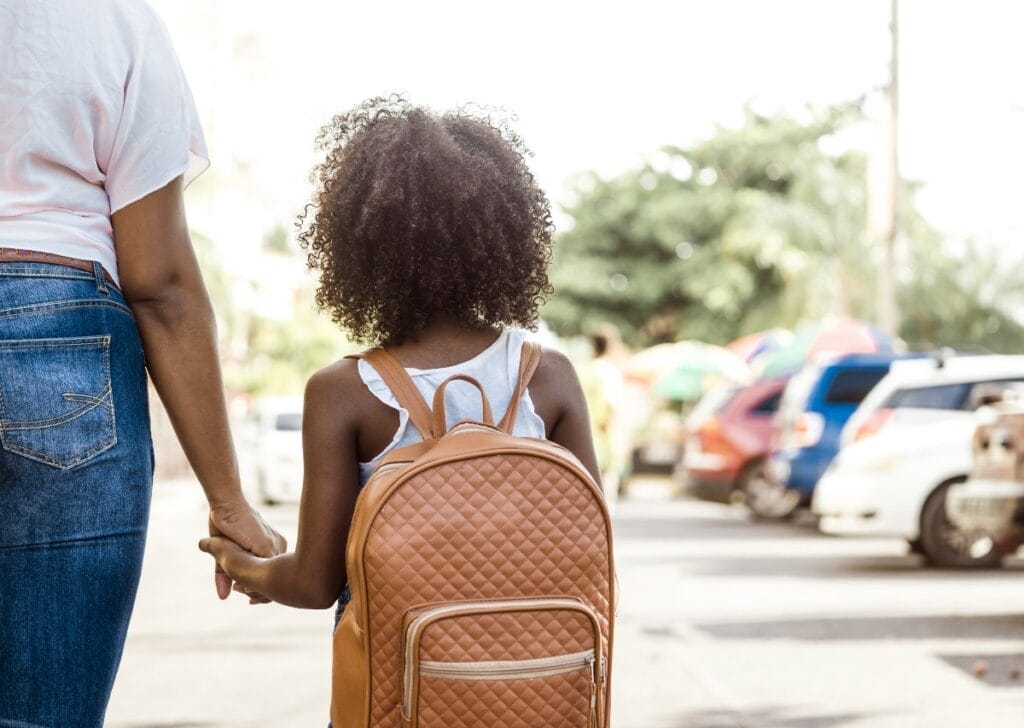Two-thirds of children whose schools are under attack by Minocqua beer baron are racial or ethnic minorities, many are poor, many are very likely his fellow Democrats
In the lawsuit bankrolled by the Minocqua beer marketer, Kirk Bangstad, who’s trying to kill school choice in Wisconsin, his lawyers make an icy admission: They know it will “impact tens of thousands of children” to throw them out of their schools. They’re asking the state Supreme Court to hurt those kids anyway.

It’s fair to ask, then, what sort of kids would make this sacrifice.
If the resort-town beer baron manages to kill school choice, 82% of the children put onto the street in Milwaukee will be African-American or Hispanic. By definition, all come from low-income homes.
In other words, exactly the ones progressives tell us we must be most concerned about: the marginalized, the poor and the powerless.
We know this because the Department of Public Instruction helpfully summarizes the demographics of Wisconsin schools. Black students using the choice program to get an education number more than 12,000 in Milwaukee alone, while about 9,000 Hispanic kids use Milwaukee’s program. This is who will pay the price if Bangstad has his way.
But it’s not just in Milwaukee. In Racine, Bangstad would send another 1,800 minority children back to a school district that fails to teach 9 out of 10 African-American children to read.
In the rest of Wisconsin outside of Milwaukee and Racine, 32% of the children using choice are minorities. All told, statewide, 69% of the 55,000 students whose schools would be taken away by Bangstad are racial and ethnic minorities. Every one of them comes from a family making no more than three times the poverty line. Two-thirds of them meet the state’s definition of “economically disadvantaged” — their families’ incomes less than 85% above the poverty line. That means under $55,000 for a family of four.
Intersectionality
The lawsuit’s collateral damage doesn’t end there. To the extent that progressives mention religious liberty at all, it is to berate their fellow Americans as uncaring toward Muslims. Yet it’s Bangstad who’s demanding that the 1,200 Wisconsin children attending Muslim schools on choice grants be summarily disenrolled.
About 5,000 children classified as English-language learners, the children of immigrants, use choice grants. “I wanted something better for my children,” said Grace Mary Limon, a Mexican immigrant in Green Bay, speaking in Spanish about why she uses the program to get her kids to a safer school, one teaching them “to think differently, to love.” Wisconsinites welcomed her to America by giving her that choice. Bangstad would take it away.
These demographics should be no surprise. Since its beginning, Wisconsin’s school choice program found its most enthusiastic support among minority parents in Milwaukee tired of the inferior education offered by the government. As Milwaukee state Sen. Annette Polly Williams, the Democrat who spent years campaigning for choice, said in 1990, “These parents would not be taking their children out of the public schools if they were being educated.” The disproportionate price Bangstad now would impose on minority families comes atop the disproportionate burden minority parents already bore to win choice.
In fact, the breadth of support for school choice mixes up the political angles. Bangstad is a left-wing Democrat. He’s run for both state Assembly and Congress as a Democrat. He brands his products as “progressive beer,” putting AOC and Bernie Sanders on labels. He launched his legal attack after a Democrat-backed candidate flipped the ideological majority on the Wisconsin Supreme Court.
Yet most youngsters whose schools he’d close are in demographic groups that lean Democrat. A third of Democrats in 2022 told the Marquette poll they wanted to expand choice so everyone of every income gets a “voucher.” A poll of 700 Wisconsinites in October found that, after school choice was described as a transfer of tax money to private schools, Democrats still favored it 50% to 43%. In “almost every key Democrat voting bloc,” pollsters found, voters said they’d be less likely to favor politicians who oppose choice.
Dignity
Bangstad’s lawyers hint at the real complaint school districts have, quoting officials in Racine and Madison as they bemoan “declining enrollment” that puts “downward pressure” on budgets. Districts’ budgets vary with how many kids they teach. Naturally districts want to compel the return of the bodies that increase their enrollment figures and budgets.
But what is to a district a digit in a headcount ledger is to her parents a beloved child. Giving her a future is their duty, and one of the best things about Wisconsinites is that two-thirds of us favor equipping those parents with the power to fulfill that duty in the school they think best. Wisconsinites understand that even as choice is a way of helping children, trusting their parents to choose a school is a respecting of their dignity.
No wonder parents using choice favor it, whatever their other political allegiances.
Progressives fret about who has power and who doesn’t. School choice is a sharing of power with the people that progressives told us were powerless. Now they’re not: Thanks to school choice, they have the power to protect, nurture and enlighten their children, perhaps the primary power any parent could wish for.
That is what Bangstad would take away.
Patrick McIlheran is the Director of Policy at the Badger Institute. Permission to reprint is granted as long as the author and Badger Institute are properly cited.
Submit a comment
"*" indicates required fields




